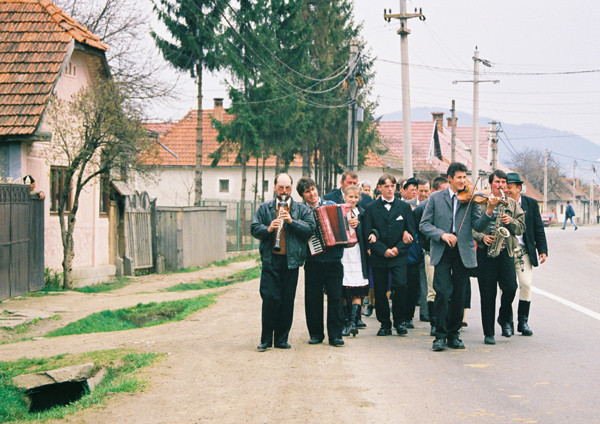Government's Romany Expert is Bundled Out of Top Hotel as Sweden Issues Official Apology to Gypsies

Sweden has apologised for a "century of discrimination" against Gypsies a week after a Romany expert was turned away by one of the country's top hotels despite being a guest speaker at a government panel set up to investigate years of racial abuse.
Diana Nyman, the chairman of the Roma Council in Gothenburg, had been invited by government officials to take part in a white paper discussion of discimination against her community when she was denied access by hotel staff to the Sheraton Hotel's breakfast lobby where the conference was taking place.
According to local media Nyman, who was wearing a traditional wide black skirt and frilly blouse, said she was almost knocked over by a staff member who rushed to bar the path of the Roma expert.
The hotel's manager has since apologised to Nyman.
Speaking after the publication of the white paper last week, the authorities said: "The situation gypsies live in today is the cause of an historic discrimination they were subjected to."
The centre-right government, led by Fredrik Reinfeldt, issued an apology for the years of discrimination suffered by gypsies but added that they were mainly carried out by social-democratic governments intent on eliminating "parasite elements" to reduce unnecessary costs in the social state, Libero Quotidiano reported.
Romany expert Nyman, who was wearing a traditional wide black skirt and frilly blouse, said she was almost knocked over by a staff member who rushed to bar her path.
Integration Ministry Erik Ullenhag spoke of an "obscure and shameful period in Swedish history" when a ban on Romany immigration to Sweden was introduced in 1914 and remained in effect until 1954.
Given a long history of discrimination against gypsies, it is unclear why the Swedish government has decided to apologise now.
During the second world war, when gypsies were sent to concentration camps, they were still denied access to Sweden.
One gypsy family out of four was subjected to forced abortion and sterilisation between 1934 and 1974.
Gypsy children were also taken away from their families during winter under the pretext of "saving them from the cold weather", Libero Quotidiano said.
Gypsies who already lived in Sweden, were not allowed to integrate with the rest of society. In school, Romani children were put in separate rooms and they were denied social services.
According to the current government, the idea was to "make their life impossible, so that they would leave the country".
In a1923 government official report Tattare och zigenare (Tatars and Gypsies), the integration of Romani people was seen as an "unsolvable problem". The "only solution is to have them out of the country, one way or another", the report said.
Despite this Romani people were officially recognised as a national minority in Sweden in 2000 but discrimination against gypsies continues.
Furthermore, in October 2013 Open Democracy reported that Swedish police authorities secretly established illegal databases of Romani people in a program originally designed for counterterrorism operations. The database contained 4,029 names, some of which belonged to people who had already died.
One month later, a Swedish equality watchdog filed a discrimination lawsuit against Norway-based multinational oil and gas company Statoil ASA, after workers at Swedish gas stations refused Roma customers rental cars.
© Copyright IBTimes 2025. All rights reserved.





















